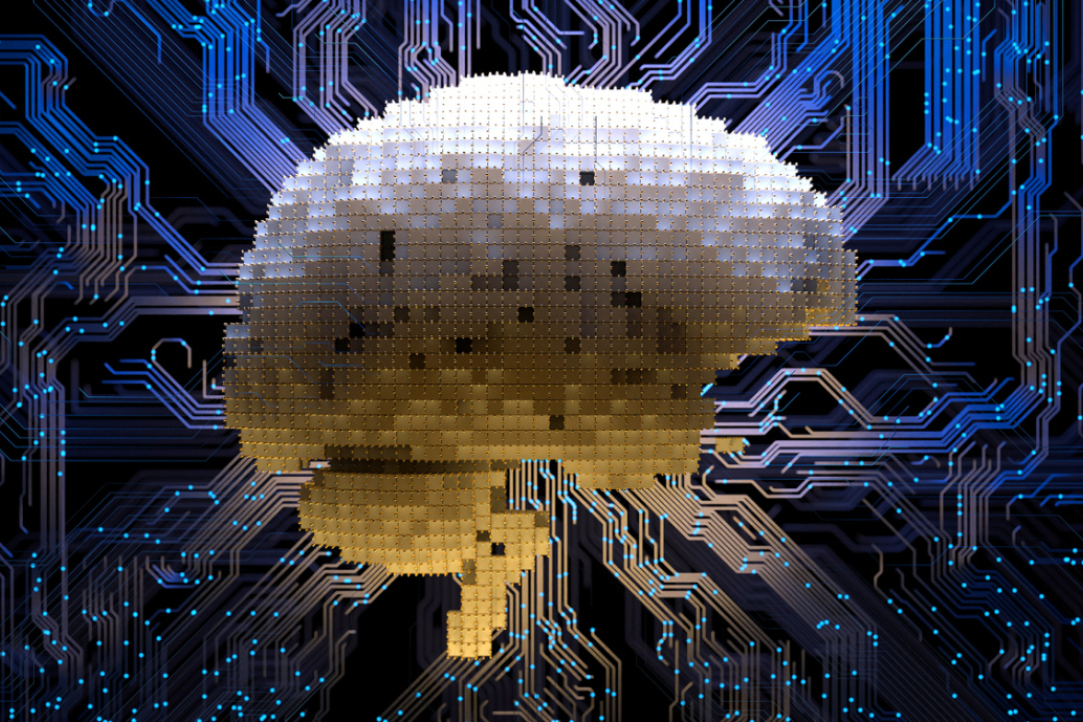‘Like Electricity, AI Can Bring Incredible Benefits’

Developments in the field of artificial intelligence are gradually taking over the world. AI has the potential to bring incredible benefits to the global economy and our quality of life, but it also creates new challenges. Panos Pardalos, Professor at the University of Florida, Academic Supervisor of the Laboratory of Algorithms and Technologies for Networks Analysis (Nizhny Novgorod), covered these issues, along with other related topics, in his recent report.
Panos Pardalos presented a report on artificial Intelligence for economics and finance, with Fuad Aleskerov, Director of the International Centre of Decision Choice and Analysis, moderating the event. Professor Pardalos compared the invention of artificial intelligence to the invention of electricity.

Panos Pardalos
‘Technology helps us to expand our capabilities and boundaries, allowing us to overcome our biological constraints. In recent years, we have been talking a lot about the augmented reality machine interface, and artificial intelligence performs cognitive actions similar to human ones — learning, understanding, reasoning and interaction. Therefore, I think it's better to call it added or augmented intelligence. This is a new field, a tool that, whether we like it or not, has the same effect on us as electricity did when it was discovered. Like electricity, which has transformed every aspect of our lives, AI can bring incredible benefits to the global economy and our quality of life. However, there are also concerns that AI, like any other technology, can create new challenges and aggravate existing problems.’
The speaker said that artificial intelligence is now considered as national priority. The USA, Canada, China, France and many other countries have adopted national AI strategies. The government realises that the successful integration of AI in various fields will stimulate the economy and be an influential tool.
Today, most AI-related patent applications to the World Intellectual Property Organization (WIPO) have been submitted in the United States and China. China is ready to take a leading position in the field of AI research and application, and to this end the government has already invested billions of dollars in this area and approved a national plan for AI dominance. Back in 2017, China presented its Artificial Intelligence Development Plan (AIDP), designed to transform the country into a global superpower by 2030, which will surpass competitors and become ‘the world's leading innovation centre in the field of artificial intelligence.’
Advances in machine learning, data science and other fields are developing rapidly and show great potential, stressed Panos Pardalos. The impressive success of these fields can be partly explained by their complex mathematical foundations (for example, optimisation techniques and operation research tools), although this important aspect is often underestimated.

Panos Pardalos spoke on the active work on AI-based approaches for applications in agriculture, manufacturing, and finance. Thus, researchers are working on methods of implementing neural networks to detect semantic changes in annual reports of companies, and the impact of changes on the future profitability of the company.
In addition, they are studying the potential of machine learning for predicting bankruptcy in the stock market. Following the financial crisis of 2007-2008, forecasting corporate bankruptcy is a priority for most financial institutions and academia.
Neural networks should be preferred among all machine learning models for predicting bankruptcy, says Panos Pardalos. However, training and designing a neural network is usually difficult and requires a lot of computing time, higher costs and more experiments compared to other models.
Speaking about the economics, many people feel optimistic about AI technologies, but at the same time there are quite serious risks, says the speaker. ‘Technology changes our life greatly, and we need to be careful, because every new tool may be used correctly, or may be abused, that is, it can be used for good or for harm. Anything can be used as a weapon, and this weapon will decide who to shoot. These risks are currently underestimated, the answers to such questions should not be simplified,’ explained the expert. The development of technology should take place in parallel with the development of people. So far, there is a lot of uncertainty about what the consequences of using artificial intelligence will be.
See also:
‘HSE’s Industry Ties Are Invaluable’
Pan Zhengwu has spent the last seven years at HSE University—first as a student of the Bachelor’s in Software Engineering and now in the Master’s in System and Software Engineering at the Faculty of Computer Science. In addition to his busy academic schedule, he works as a mobile software engineer at Yandex and is an avid urban photographer. In his interview with the HSE News Service, Zhengwu talks about the challenges he faced when he first moved to Russia, shares his thoughts on ‘collaborating’ with AI, and reveals one of his top spots for taking photos in Moscow.
Scientists Present New Solution to Imbalanced Learning Problem
Specialists at the HSE Faculty of Computer Science and Sber AI Lab have developed a geometric oversampling technique known as Simplicial SMOTE. Tests on various datasets have shown that it significantly improves classification performance. This technique is particularly valuable in scenarios where rare cases are crucial, such as fraud detection or the diagnosis of rare diseases. The study's results are available on ArXiv.org, an open-access archive, and will be presented at the International Conference on Knowledge Discovery and Data Mining (KDD) in summer 2025 in Toronto, Canada.
Megascience, AI, and Supercomputers: HSE Expands Cooperation with JINR
Experts in computer technology from HSE University and the Joint Institute for Nuclear Research (JINR) discussed collaboration and joint projects at a meeting held at the Meshcheryakov Laboratory of Information Technologies (MLIT). HSE University was represented by Lev Shchur, Head of the Laboratory for Computational Physics at the HSE Tikhonov Moscow Institute of Electronics and Mathematics (HSE MIEM), as well as Denis Derkach and Fedor Ratnikov from the Laboratory of Methods for Big Data Analysis at the HSE Faculty of Computer Science.
AI vs AI: Scientists Develop Neural Networks to Detect Generated Text Insertions
A research team, including Alexander Shirnin from HSE University, has developed two models designed to detect AI-generated insertions in scientific texts. The AIpom system integrates two types of models: a decoder and an encoder. The Papilusion system is designed to detect modifications through synonyms and summarisation by neural networks, using one type of models: encoders. In the future, these models will assist in verifying the originality and credibility of scientific publications. Articles describing the Papilusion and AIpom systems have been published in the ACL Anthology Digital Archive.
HSE Researchers Develop Python Library for Analysing Eye Movements
A research team at HSE University has developed EyeFeatures, a Python library for analysing and modelling eye movement data. This tool is designed to simplify the work of scientists and developers by enabling them to efficiently process complex data and create predictive models.
‘Many Want to Create AI-Based Products and Become More Competitive’
In 2024, the online Russian-taught master’s programme ‘Artificial Intelligence,’ offered by the HSE Faculty of Computer Science, saw a record number of first-year students—over 300. What accounts for such a high interest in AI, how the curriculum is structured, and what new skills will graduates acquire? Elena Kantonistova, the programme’s academic director, shares more.
'I Would Like to Leave a Lasting Impact on Science'
Aibek Alanov pursues his own scientific research and leads two teams of scientists, one at HSE University and the other at AIRI. In this interview for the HSE Young Scientists project, he explores the parallels between today's AI researchers and early 20th-century physicists, discusses generative models, and shares his passion for bachata partner dancing.
HSE’S Achievements in AI Presented at AIJ
The AI Journey international conference hosted a session led by Deputy Prime Minister Dmitry Chernyshenko highlighting the achievements of Russian research centres in artificial intelligence. Alexey Masyutin, Head of the HSE AI Research Centre, showcased the centre’s key developments.
Drivers of Progress and Sources of Revenue: The Role of Universities in Technology Transfer
In the modern world, the effective transfer of socio-economic and humanities-based knowledge to the real economy and public administration is essential. Universities play a decisive role in this process. They have the capability to unite diverse teams and, in partnership with the state and businesses, develop and enhance advanced technologies.
AI on Guard of Ecology: Students from Russia and Belarus Propose New Solutions to Environmental Problems
An international online hackathon dedicated to solving environmental problems was held at HSE University in Nizhny Novgorod. Students employed artificial intelligence and computer vision to develop innovative solutions for image segmentation, predictive modelling (forecasting future events based on data from the past) of emissions and creating chatbots for nature reserves and national parks.


